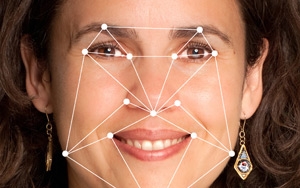Google Accused Of Violating Illinois Privacy Law By Compiling 'Faceprints'
- by Wendy Davis @wendyndavis, March 2, 2016
 Google has been hit with a potential class-action lawsuit in Illinois for allegedly violating a state privacy law by collecting people's "faceprints" without their consent.
Google has been hit with a potential class-action lawsuit in Illinois for allegedly violating a state privacy law by collecting people's "faceprints" without their consent.
"Google has created, collected and stored, in conjunction with its cloud-based 'Google Photos' service, millions of 'face templates' (or 'face prints') -- highly detailed geometric maps of the face -- from millions of Illinois residents, many thousands of whom are not even enrolled in the Google Photos service," Illinois resident Lindabeth Rivera alleges in a lawsuit filed Tuesday in federal court in Illinois.
Rivera says in her complaint that she doesn't have a Google Photos account, but that photos of her were uploaded to the service after they were taken by someone else. "Upon upload to the cloud-based Google Photos storage service, Google analyzed these photos by automatically locating and scanning plaintiff’s face, and by extracting geometric data relating to the contours of her face and the distances between her eyes, nose, and ears -- data which Google then used to create a unique template of Plaintiff’s face," the complaint alleges.
She accuses Google of violating the Illinois Biometric Information Privacy Act, which requires companies to obtain written releases from people before collecting certain biometric data, including scans of face geometry. That measure, passed in 2008, also requires companies that gather biometric data to notify people about the practice, and to publish a schedule for destroying the information.
Facebook and Shutterfly are facing similar lawsuits. Those companies have argued that the Illinois law doesn't apply to faceprints created from photos. Even though the Illinois law says it applies to scans of face geometry, the measure specifically excludes photos from the definition of "biometric identifiers."
Last December, a federal judge refused to dismiss the case against Shutterfly. U.S. District Court Judge Charles Norgle in Illinois said in the ruling that the complaint against Shutterfly "plausibly stated a claim" under the Illinois law.


